The Health Insurance Portability and Accountability Act (HIPAA) set forth exacting, stringent requirements for the healthcare industry. Every day, hundreds of thousands of healthcare professionals must maintain strict compliance with HIPAA or risk severe consequences. The law’s requirements cover both physical and digital actions.
Any reputable practice management solution provider knows the requirements and ensures its software meets HIPAA criteria. Since compliance is an industry standard, when it comes time for you to choose a practice management solution, how do you decide which one is best?
It’s important to weigh the pros and cons of each practice management solution. In this post, we compare two such solutions — TherapyNotes vs SimplePractice — with insights from Nicole Lecherza-Drew, Psy.D., a licensed psychologist and owner of Vici Psychological Care.
Lecherza-Drew has used both tools extensively for scheduling appointments, taking patient notes, and handling other tasks, giving her a valuable perspective on this topic.
She used TherapyNotes as an intern for about two years. When she earned her license and started her own practice, she turned to SimplePractice. After about a year and a half, she switched back to TherapyNotes.
Read on for her take on TherapyNotes vs SimplePractice.
TherapyNotes vs SimplePractice: Introduction and pricing
What is TherapyNotes?
TherapyNotes is a HIPAA-friendly electronic health record (EHR), practice management, and billing solution designed specifically for behavioral health professionals. Psychologists, therapists, psychiatrists, and social workers — or members of their administrative team — can all use this solution to eliminate paper-heavy processes and digitize a number of operational tasks. The software expedites and streamlines patient records and medication management, appointment scheduling, telehealth scheduling and meeting options, insurance billing, and more.
Here’s the pricing breakdown for TherapyNotes:
- Solo costs $49 per month for one user.
- Group costs $59 per month for the first clinician and adds $30 per month for each additional clinician; you can have unlimited non-clinical staff.
- Enterprise costs $59 per month for the first clinician and $30 per month for each additional clinician. It follows the same pricing as Group but includes a designated account manager.
All plans come with the same set of features and include unlimited clients, appointments, notes, one-on-one telehealth sessions, and file storage. You can also add optional features at an additional charge, such as electronic billing, appointment reminders via text or phone, credit card processing, and ePrescribe. TherapyNotes comes with a 30-day free trial, and no credit card is required.
What is SimplePractice?
SimplePractice is HIPAA-friendly practice management software tailored to the needs of health and wellness professionals such as acupuncturists, mental health professionals, physical therapists, and speech-language pathologists.
This software helps practices create a paper-free work environment and digitize activities like patient appointments and communication, insurance billing, progress notes, and more.
Here’s the pricing breakdown for SimplePractice:
- Starter starts at $29 per month and includes unlimited clients, paperless intakes, a client portal, basic documentation options, and core billing options.
- Essential starts at $69 per month and adds appointment reminders, telehealth, secure client messaging, custom treatment plans, automated payment report recording, and the ability to create a professional website.
- Plus starts at $99 per month and adds calendar syncing, Wiley Treatment Planner, and the ability to add billers, supervisors, schedulers, clinicians, and a practice manager.
- Plus (Group Practice) starts at $158 per month and includes two clinician accounts, though you can add more for $99 for the first clinician and $59 for the each additional clinician.
Find out more about them in our guide, SimplePractice pricing.
You can customize each plan to add on features for an additional monthly fee. Some additional features are only available on certain plans. SimplePractice comes with a 30-day free trial, and no credit card is required.
TherapyNotes vs. SimplePractice: Pros and cons
TherapyNotes pros
“TherapyNotes is incredibly user-friendly,” says Lecherza-Drew. The system’s broad range of features doesn’t impede its usability. She reports that the learning curve is quite reasonable for this kind of system, as running a mental health practice can be quite complex.
She also mentions that user reminders are helpful to her practice. Even though she has staff members who provide operational assistance, there’s still a chance that some to-do items will fall through the cracks. “Reminders nudge me to update a treatment plan or prompt a staff member to follow up with a patient who’s yet to sign an important form,” Lecherza-Drew says.
“It’s easy to write patient notes, given how the system structures and sets them up,” she says. This isn’t surprising given the name of the platform. In fact, she appreciated the setup so much, she recreated it when she used SimplePractice.
TherapyNotes cons
“One significant downfall of TherapyNotes is its lack of customization,” says Lecherza-Drew. For example, you can’t update your weekly availability starting on a future date; the system only allows updates going forward from the day you change it.
Also, patient reminders are limited to the default settings. You can’t change the message or timing — email and text reminders are sent 48 hours and 24 hours prior to an appointment, respectively. That’s a problem since patients must cancel 48 hours in advance per her policy.
“I have to expend additional effort to ensure patients understand and agree to the policy if they opt into text reminders,” Lecherza-Drew says.
She also calls out the limited patient communication capabilities on the platform. While you can share documents easily enough, there’s no way to directly message patients. “That seems strange for a solution that offers a patient portal,” she says.
SimplePractice pros
“SimplePractice’s customizability was the main reason I chose it over TherapyNotes when I first started my practice,” Lecherza-Drew explains. Not only can you customize progress notes, you can also tailor reminders and forms to suit your practice’s needs.
The messaging capability is another feature that meets her needs. She and her staff often need to interact with patients to answer treatment questions, follow up on billing concerns, and address other matters. “It’s more convenient to do so within the platform instead of relying on email,” she says.
SimplePractice cons
Lecherza-Drew’s main gripe about SimplePractice is its poor telehealth/teletherapy feature. It’s what drove her back to TherapyNotes. She would frequently get disconnected and experience bad call quality, which impacted both patient satisfaction and operational efficiency.
Patients would be frustrated with the call experience, and she had to add more time between appointments to allow for technical difficulties, resulting in fewer patient sessions per day.
“I also don’t like the lack of customer service because I sometimes need workarounds for software bugs or directions on how to accomplish a task,” she explains. In lieu of a traditional phone number or email, SimplePractice would direct users to its Facebook group to post questions for the customer service team. However, this is a practice that may have changed after she switched platforms.
TherapyNotes vs SimplePractice: 5 features compared
For this feature comparison, we looked at customer reviews from third-party review site Trustpilot. Users give TherapyNotes a 4.8 rating and SimplePractice a 4.4. User quotes below come from the platforms’ respective Trustpilot listings.
1. Telehealth
Both solutions have integrated telehealth capabilities, but user reviews are more positive for TherapyNotes vs SimplePractice, though, in fairness, the quality of the integration isn’t perfect with either solution.
Here’s what users have to say about the telehealth feature in TherapyNotes:
- “[My clients] couldn’t believe how clear the video was for telehealth.” —Tracy Collins, LMFT
- “The layout, ease of notes, telehealth connection…all great…” —Ann F., LCSW
- “…while the telehealth platform is very convenient and works well, I cannot then access client information or paperwork during the session.” —Corie Putnam, LMHC
- “There is still space for the better, especially with the Telehealth options…” —Camille M.
Here are a few user comments about telehealth for SimplePractice:
- “The telehealth feature has also been valuable to me, with some frustrations regarding connectivity…” —JoEllen Quigley
- “Telehealth connectivity and availability can be spotty.” —Stephanie Bloodworth
- “I have run into occasional technology issues with their telehealth client but that seems about on par for any telehealth product so it’s fine.” —Lesley M.
- “…so far have been very disappointed by clients reporting connectivity issues at the start of [their] session and many sessions [have] poor video performance.” —Dr. Hilary Beech
2. Billing
According to user sentiments, the billing feature in TherapyNotes has a largely positive reception, while it’s a mixed bag with SimplePractice.
Users share their experience with billing in TherapyNotes:
- “…the coordination with billing is seamless.” —Monarch Consulting
- “Would absolutely recommend to anyone looking for software to run their scheduling and billing.” —Shane Heidt
- “Billing, scheduling, and progress notes are made easy with TherapyNotes because the system does most of the work for you.” —Dr. Burns
- “…the billing/insurance process makes our jobs so much easier!” —Lindsey A.
For billing in SimplePractice, users say
- “Billing set up is easy and it’s easy to submit claims.” —HK
- “I am actively looking elsewhere for an EHR and billing company.” —Shay
- “I submitted billing through their platform and 90% of them did not even make it to the insurance company.” —Laura Schmidt
- “SP has made it possible to completely automate my billing which means I get hours back each week.” —Emily Whitish
3. Notes
For many practitioners, the notes feature is at the top of their list of must-haves when choosing a practice management solution. Fortunately, the feature seems to be well developed in TherapyNotes. As for SimplePractice, while many users find the feature to be acceptable, just as many feel it needs some work.
Here are a few user comments about notes in TherapyNotes:
- “Entering demographics, writing progress notes, collecting payment and verifying eligibility are so intuitive…” —Lisa R.
- “The notes are extremely well-done and populate easily.” —B. Ashe
- “The TherapyNotes software is easy to use and makes writing notes and other documentation simple.” —Lauren
- “Medicaid behavioral health has complex compliance requirements and TherapyNotes keeps us sleeping soundly at night knowing our notes and billing are proper.” —Andrew Rose
Here’s what users are saying about SimplePractice’s notes feature:
- “I like how easy it is to write notes, share documents, and create charts.” —Tim Porter
- “We need reminders for started-but-incomplete/unsigned notes…[having] to write a reminder for myself is really annoying.” —Kacey Hughes
- “The treatment goals DO NOT show up on the progress notes like other EMRs; you have to remember the goal to fill it in each time.” —Frustrated therapist
- “My staff [is] complaining about how clunky and difficult the notes are to use.” —Andrea
4. Scheduling
Unlike the preceding features, users of both TherapyNotes and SimplePractice like the scheduling feature. Most of the mixed reviews were more neutral than negative, typically offering feedback for improving the feature to help save more time.
Here are a few scheduling sentiments for TherapyNotes:
- “It’s the only service I’ve found where everyone in the office can understand and use [its] simple scheduling system…” —Josh Maxwell-Swarthout
- “The integration between scheduling, billing, client files, and the client portal is seamless and extremely intuitive on both sides…” —K. Bisciotti
- “I use this as a psychologist, and it’s made scheduling and documentation a breeze.” —Melissa Schroeder
- “TherapyNotes has made my business scheduling, note keeping, and billing processes seamless.” —Michael Weinberg
Here’s what users say about scheduling in SimplePractice:
- “The ease of setting up clients, the ease of scheduling, the ease of syncing your calendar […] all have made it worthwhile to invest in this platform.” —Thudson
- “The self-scheduling options are great for my clients, and [it’s] very easy to navigate…” —Aubrey
- “I’m new to private practice and it’s been a lifesaver with tracking clients, scheduling, notes, etc.” —Amma Pennick
- “The EMR is incredibly user friendly for scheduling…” —Amy Bland
5. Client portal
Much like with scheduling, TherapyNotes and SimplePractice users like the client portal.
Here’s what users say about the TherapyNotes client portal:
- “The patient portal is outstanding.” —Paulette Selmi
- “The portal is easy to use for communication with my clients.” —Kristen Perry
- “The portal is user friendly and the customer service is outstanding!” —Beau Laviolette, LCSW
- “Only thing that needs some updates is the intake paperwork & portal process which can be very confusing to clients to navigate.” —Lindsey A.
Users share their opinion about SimplePractice’s client portal:
- “I like that the templates are customizable and the client portal feature works well.” —Brittany Palmer
- “All of my clients find it easy to access the portal and I’ve had zero complaints.” —Lillyana Morales
- “Everything is at your finger tips and so far my clients love the client portal.” —Yanique Grant, LCSW
- “There is quite a big learning curve when it comes navigating client records, client portal, correcting payment errors, etc.” —Melissa Hall
TherapyNotes vs SimplePractice: The final verdict
While Lacherza-Drew plans on continuing to use TherapyNotes, she’s not fully satisfied. Neither TherapyNotes nor SimplePractice meets all of her needs in areas that are essential to her practice. As for which solution you should use, consider how the above pros and cons — and user sentiments about different features — will impact your practice, and then decide whether one of these platforms could work for you.
More efficient practice management with another HIPAA-friendly solution: Jotform
Many practitioners use Jotform, a powerful form builder, to make their practices more efficient. Our solution is HIPAA-friendly (on the Gold and Enterprise plans) and includes a number of healthcare forms you can use to digitize patient intake, get patient consent, collect patient information, survey patients on their experience, and more.
Jotform offers numerous healthcare-related templates:
- Pharmacy service satisfaction survey: Discover how your customers feel about the service they received at your pharmacy.
- Telemedicine e-visit request form: Enable patients to request a telehealth visit with their contact information and description of desired care.
- Health evaluation form: Use this form as part of your intake process to enable patients to provide you with a self-assessed view of their health and medical history.
Ready to get started? Try one of the above templates or one of our 1,600+ healthcare forms today.


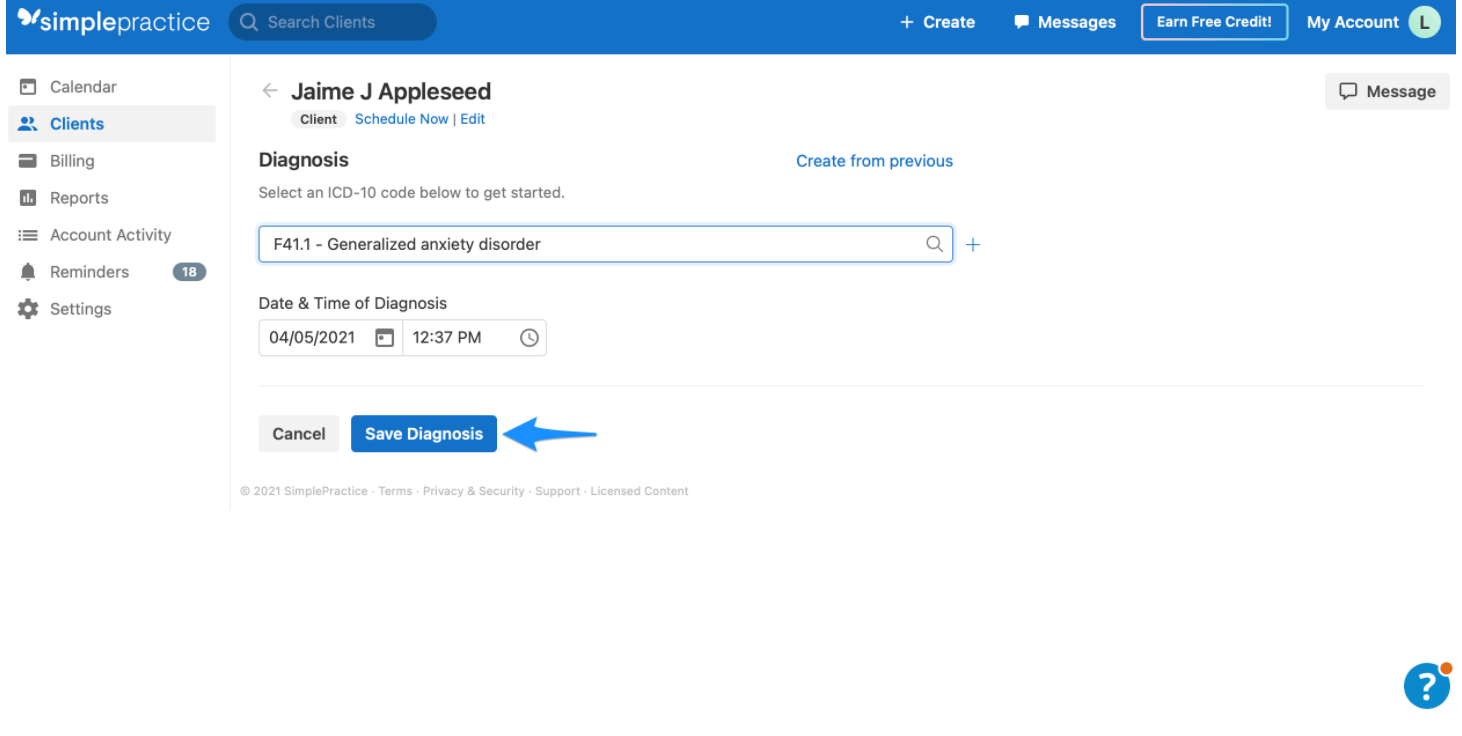





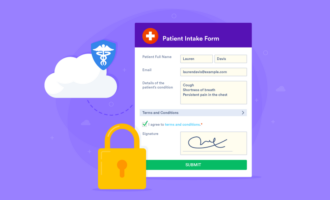





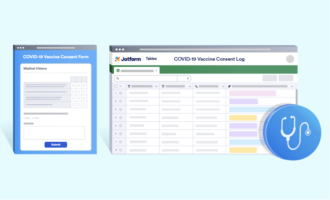

























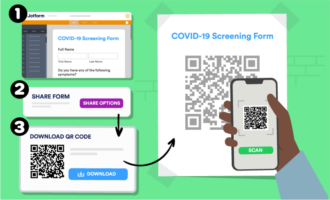











































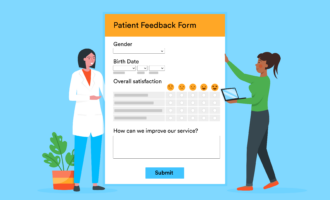



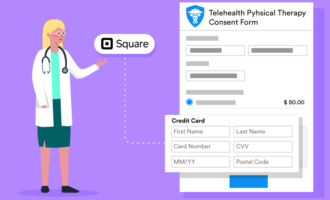

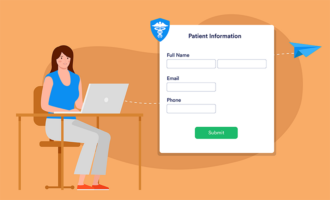
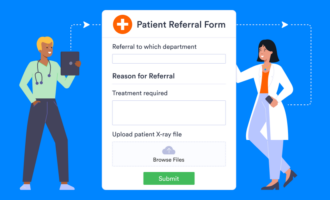








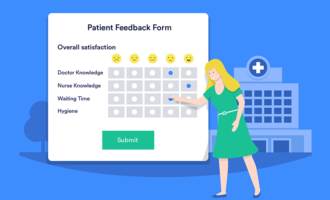



Send Comment: